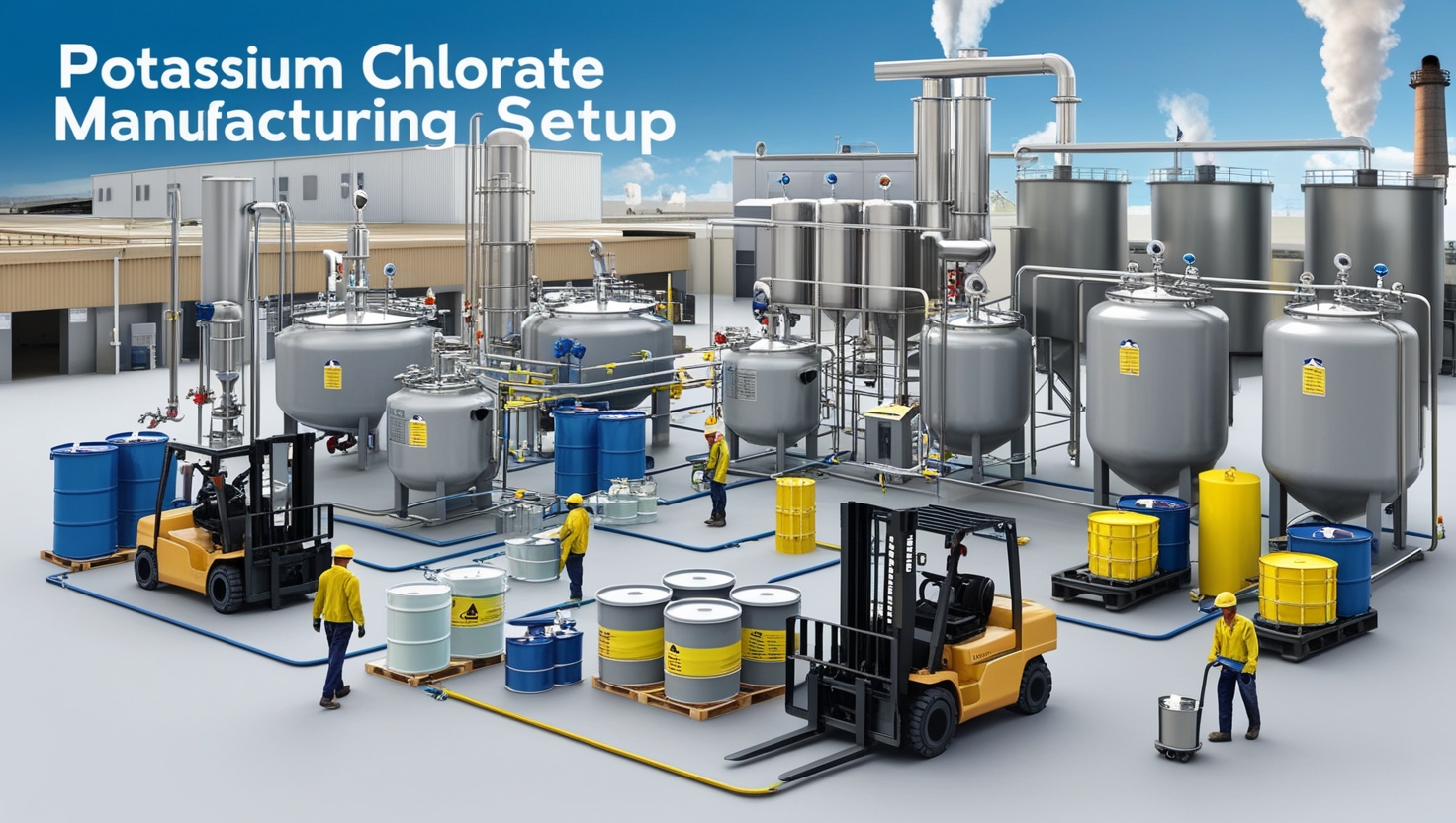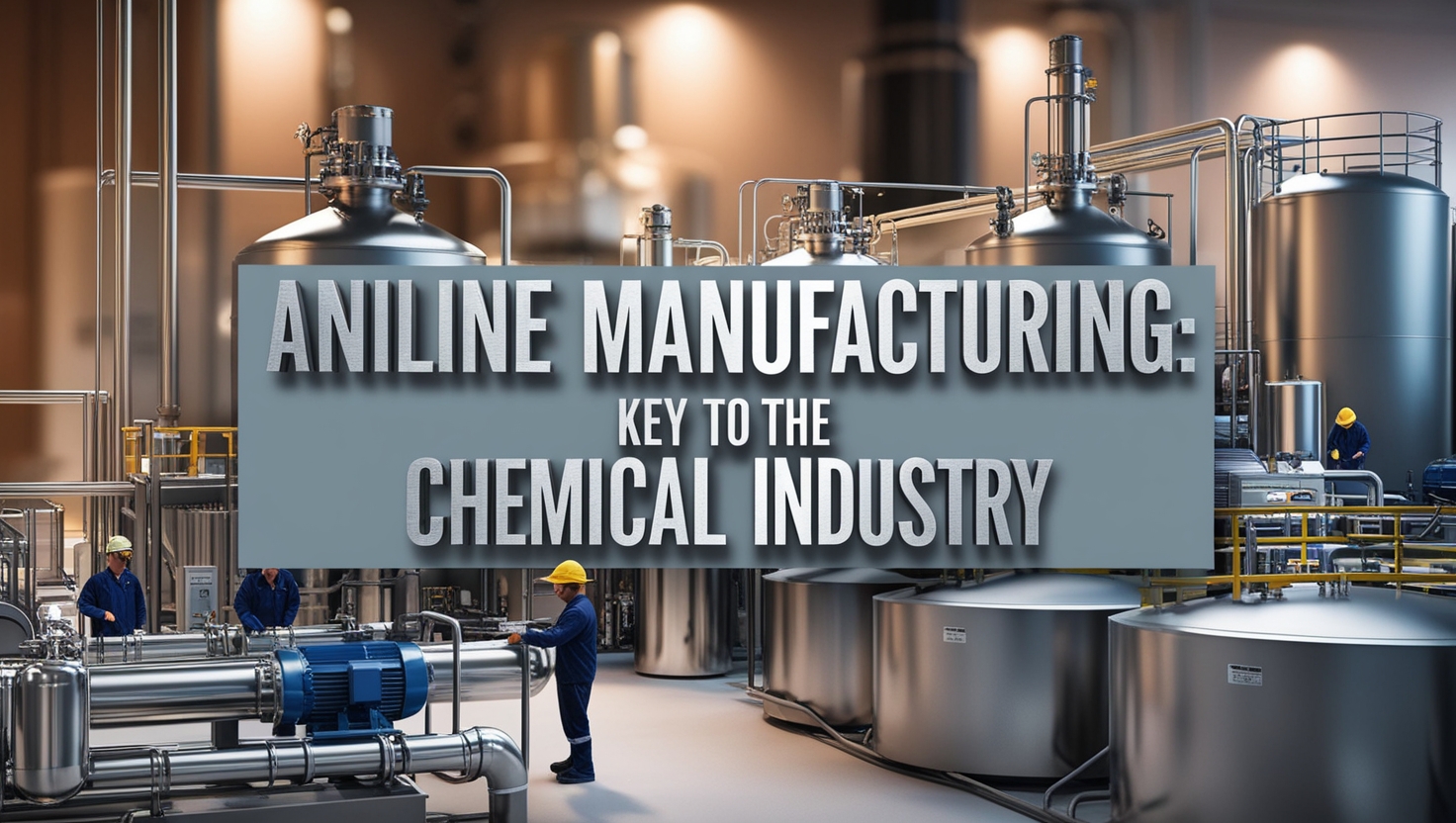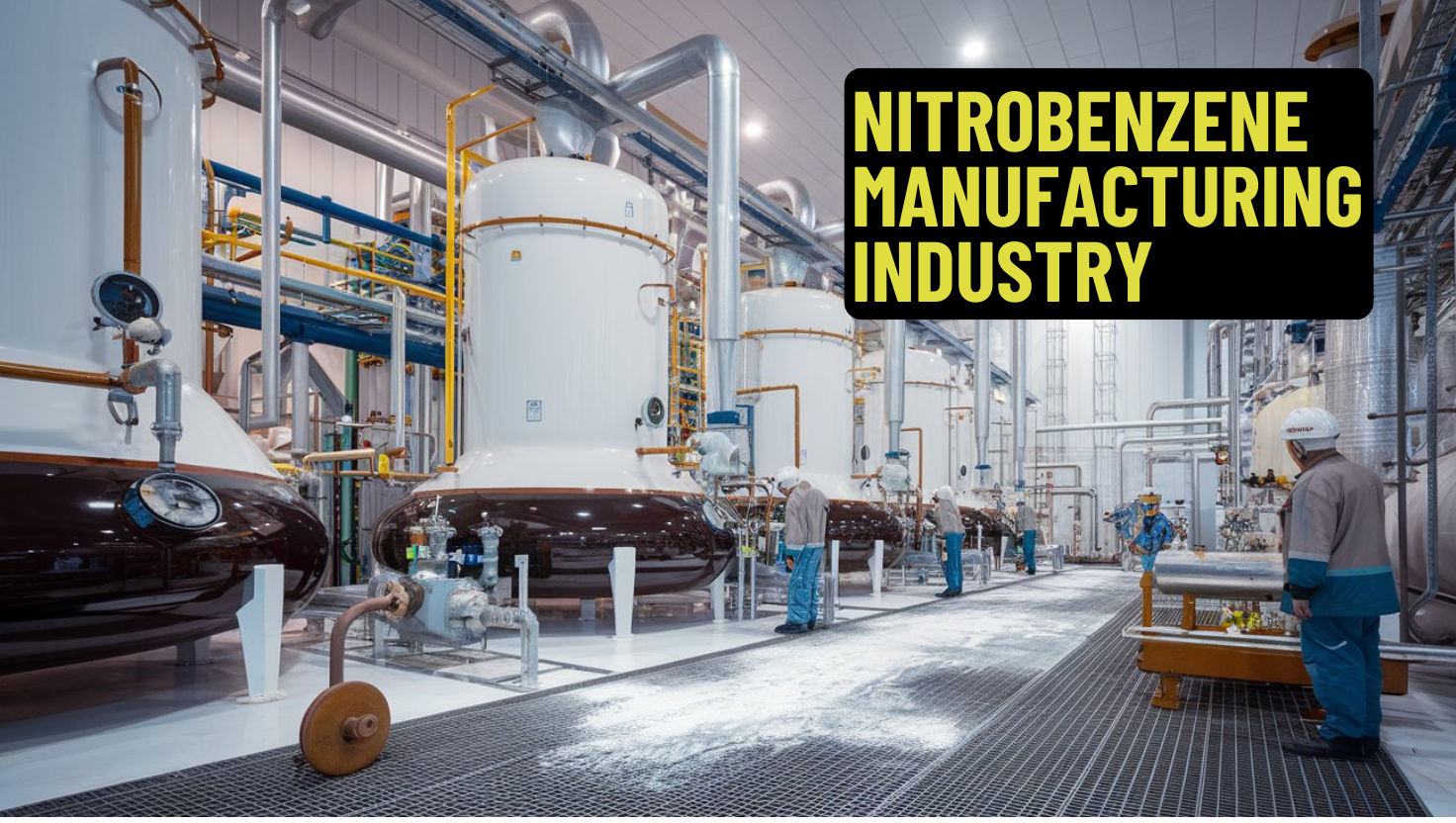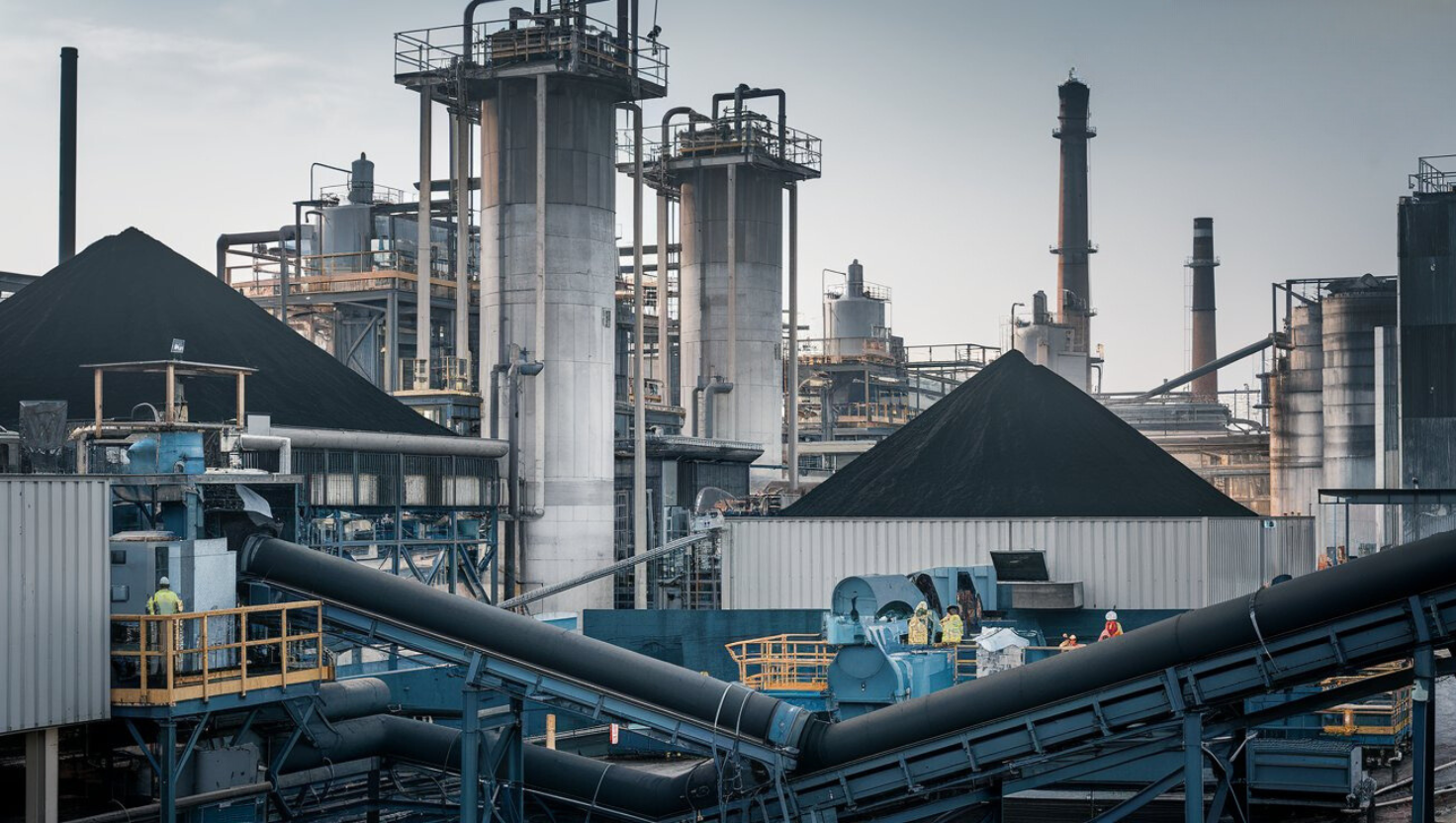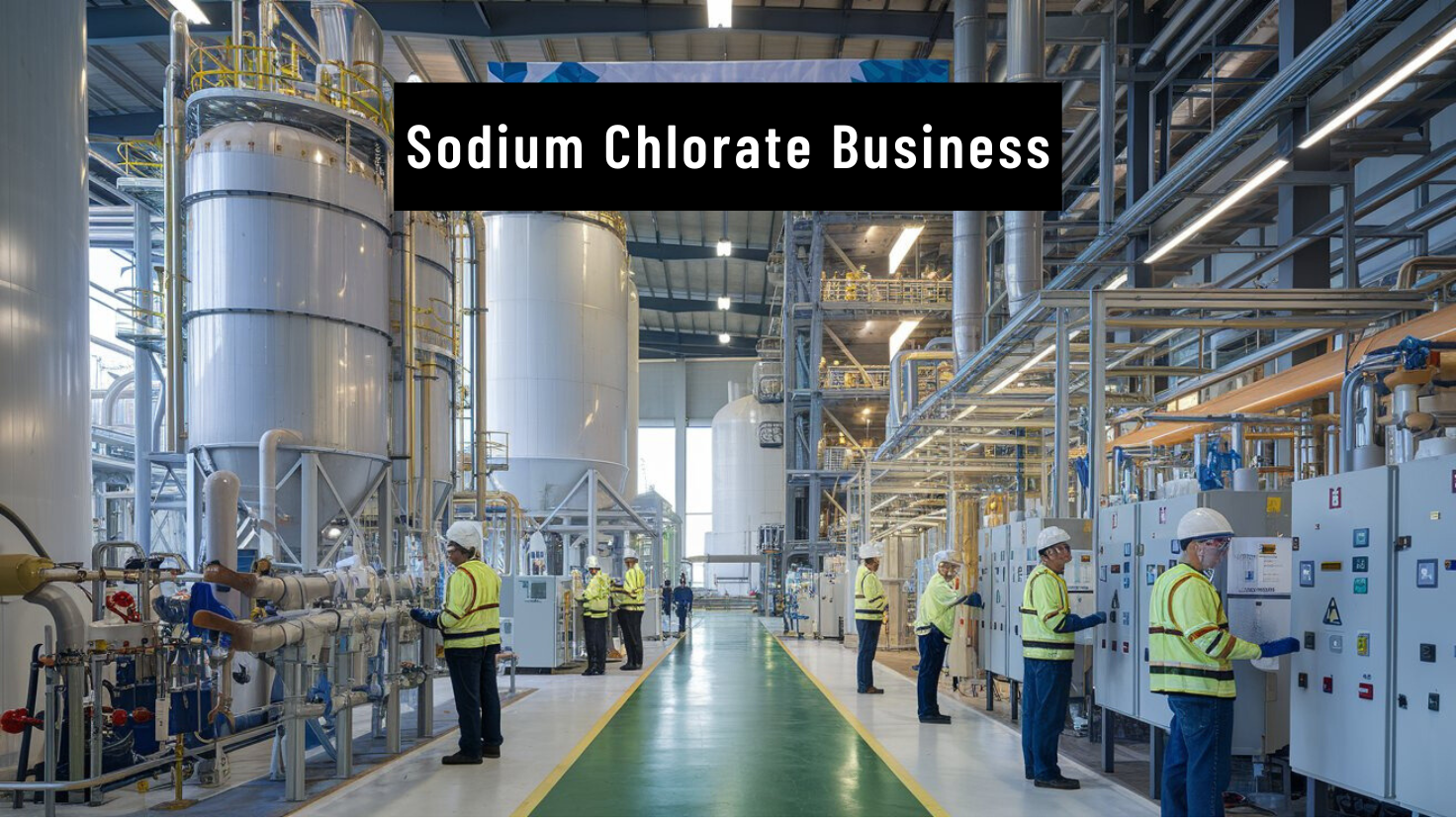Potassium chlorate is one of the widely used chemical compounds which is used in different industries, therefore is an opportunity for a great business venture to establish a manufacturing plant. This potassium chlorate use, manufacture, and basic steps to start a business in this chemical industry will be explained in this guide.
What is Potassium Chlorate?
Potassium chlorate is an inorganic compound which is white crystalline powder and decomposes to form potassium chloride and oxygen when heated. It is a very strong oxidizing agent and finds application in manufacture of fireworks, explosives, matches and disinfectants. Due to its chemical characteristic it finds application in various industrial uses.
Why Start a Potassium Chlorate Business?
The market with potassium chlorate is growing in several industries and this means that it can be very profitable. Here’s why:
- Diverse Applications: Several uses of potassium chlorate include in pyrotechnics, agriculturally, and in the manufacture of drugs.
- Growing Market: The potassium chlorate market globally is growing at a steady rate owing to the growing use in production of explosives, disinfectants, and agricultural chemicals.
- Health and Safety Trends: Chemical manufacturing industry needs effective and secure methods of production that have exposed the need for innovation in this industry.
- Innovation Potential: They may also create new formulations and extend the uses of potassium chlorate depending on the existing trends in the modern world today due to development in the area of technology.
- Scalability: Invest a small amount of capital then try to increase the production timeline with the increased demand.
Benefits of Starting a Potassium Chlorate Business
Starting a potassium chlorate manufacturing business has several has several advantages:
- Rising Demand: The facility of using potassium chlorate in many industries can ascertain that there is a stable and growing market.
- Broad Market Potential: It caters for several industries including pyrotechnics and agriculture thus making it possible for them to diversify.
- Scalable Business Model: It is possible to open small manufacturing and add more lines as you progress in the growth of the business.
- Innovation and Customization: The possibilities of developing one’s own chemical products and creating new products in the form of formulations may be viewed as the opportunities for differentiation.
Top Applications of Potassium Chlorate
Understanding its various uses will help you identify target markets for your product:
- Pyrotechnics and Fireworks
Fireworks Production: Potassium chlorate is one of the raw materials used in producing fireworks since it exhibits oxidation characteristics.
Explosives: Practically it is widely utilized in manufacture of explosives for use in mining as well as in military purposes.
- Agriculture
Herbicides: Gets applied in weed killing chemicals, and also as a defoliant for the cotton crops.
Fertilizers: It has an application in contributing towards the provision of important nutrients to plants in many of the agricultural production mixtures.
- Pharmaceuticals
Disinfectants: In manufacturing chemical products used for antiseptic and disinfectant purposes, potassium chlorate is used.
Medications: It is a credible additive for pharmaceutical solutions, which is used as a part of oral medications for particular diseases.
- Safety Matches
Matches Manufacturing: A component used in the manufacture of match heads especially due to the ignition properties related to potassium chlorate.
- Industrial Applications
Bleaching Agents: Applied in the paper and textile industries where it is characterized by great oxidizing capabilities.
Water Treatment: Used in water treatment plants as oxidizing agent used for the removal of pollutants.
Production Methods of Potassium Chlorate
Knowledge of the production process as a package is very valuable in establishing a good business. Below are the essential steps involved:
Raw Material Sourcing:
- The main raw materials that are needed are potassium chloride (KCl) and sodium chlorate (NaClO₃).
Electrolysis Process:
- The above substance is again exposed to electrolysis, and potassium chlorate is produced.
- The reaction normally occurs in an electrolytic cell and the KCl is dissolved in water while an electric current is applied on the solution.
Filtration and Purification:
- You then filter the solution to eliminate any impurities or by-products formed during the reaction.
- Purification is crucial because it ensures that you do not produce unwanted by-products, which could result in low-quality potassium chlorate.
Crystallization:
- After that, the solution is cooled down in order to solidify the produced potassium chlorate and form a crystal.
Drying and Milling:
- The potassium chlorate is then crystallized and subsequently dried to minimize the amount of moisture that is present on it.
- Thereafter, the dried product is milled to the required particle size as determined by the various uses for the product.
Quality Control:
- It also has to pass through several quality control checks to meet the industry standard quality of the product.
Packaging:
- It is packed according to the needs of the customer so that the product can be kept safely during transport and on the storage shelves.shelves
Machinery Required for Potassium Chlorate Manufacturing
A successful potassium chlorate production unit depends on the proper sourcing of machines and other necessary equipment. Some of the important pieces of equipment that are significant in its production include:
- Electrolytic Cells: These cells perform electrolysis and convert potassium chloride (KCl) into potassium chlorate with the help of electric current; they constitute a fundamental part of any setup for manufacturing these chemical compounds.
- Reactors: Reactors are closed containers used to start or control chemical reactions within a safe enclosure in order to ensure that raw materials are properly converted.
- Crystallizers: This equipment assists in crystallization where potassium chlorate turns into crystals after the reaction has taken place.
- Filtration Units: For this purpose, we will use filtration units to prevent impurities and by-products from mixing with the final product again.
- Dryers: Once crystallized, moist crystals of potassium chloride need dryer treatment so that they conform to required quality standards.
- Milling Machines: Dried potassium chlorate crystals may be fed through milling machines, which grind them down depending on their future application purpose.
- Packing Equipment: The automated packing machines use cost-effective materials to wrap potassium chlorate, ensuring safe storage and transportation without causing harm or pollution.
- Instruments for controlling quality: This refers to a variety of testing and analytical devices employed in determining different aspects such as standardization, purity and safety of potassium chlorate during the production process.
Steps to Start Your Potassium Chlorate Manufacturing Business
Market Research:
- Undergo a market research that will enable the determination of the available market, competition and prospective consumers.
- Discover markets that are not fully covered or where you can introduce changes.
Create a Business Plan:
- Write a comprehensive business plan containing production capabilities, estimated revenues and expenses, marketing approaches and the target consumers.
Regulatory Compliance:
- Where you are based, make sure that the manufacturing for chemicals is in line with the laws in the country or state you are located and the international laws on chemicals.
- Acquire other permits from environmental and safety departments of the country as required by law.
Set Up Manufacturing Infrastructure:
- Ensure you procure the best equipment in reactors, electrolytic cell, crystallizers, dryer as well as your packing machinery fixtures.
- Provide yourself with a good plant to carry out the production process.
Sourcing Raw Materials:
- Find sound suppliers for potassium chloride and the other raw materials required in the production.
- The other strategic purchasing option is to secure long-term contracts for supply to mitigate supply chain risks.
Quality Assurance:
- Control the quality of the products by ensuring that they maintain the quality standard of the industry.
Marketing and Sales:
- You must devise an effective marketing plan to ensure that you market your potassium chlorate products effectively in different sectors.
- Some ideas include, display your products in trade shows, industry expos and perhaps engage with potential buyers.
Research and Development:
- Make R&D a continuous process as this will enhance the production process and its cost, while discovering the other uses of potassium chlorate in the market.
Conclusion
There is an opportunity in starting potassium chlorate manufacturing business for the new entrepreneurs. Huge demand in different industries, the possibility to expand its scales. Create new products make it a very promising one. If the businessperson conducts thorough research on the market, operations legal requirements, and production line. He or she can create a prosperous potassium chlorate business. Keep track of the market and advance at understanding users’ needs and developments so your business will prosper in this growing chemical industry.
Some More Links
Join With Us
Related Blogs
https://www.niir.org/blog/starting-a-silicon-crystals-business/
https://www.niir.org/blog/the-most-profitable-chemical-industry-business-in-the-philippines/#
Join us on YouTube
https://www.youtube.com/c/NIIRproject/playlists

